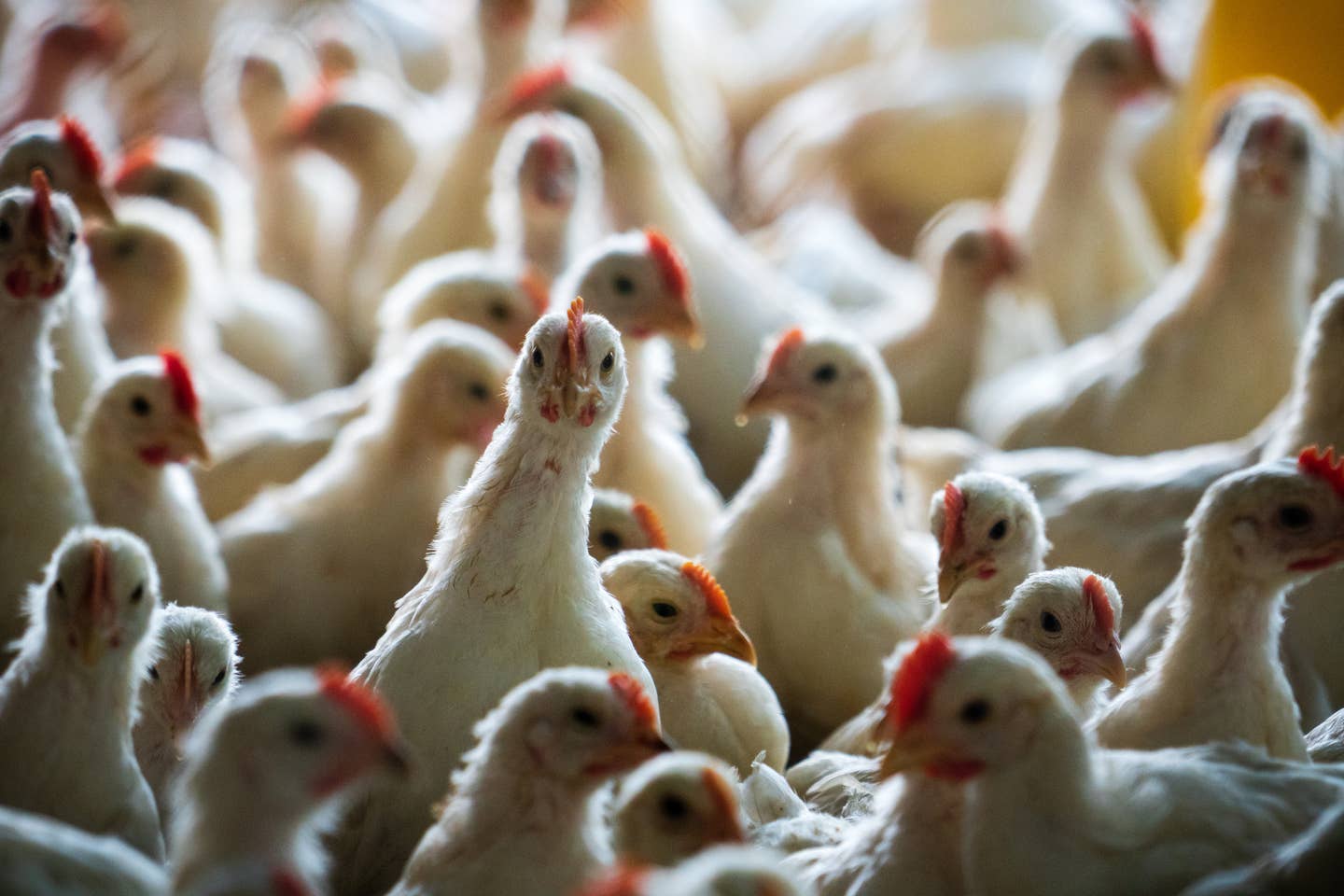
Factory Farming Is the ‘Most Risky Behavior’ That Could Lead to the Next Pandemic, New Report Asserts
A new report published today by ProVeg called the Food and Pandemics Report says factory farming is the number one risk when it comes to the chance of future pandemics.
The report focuses on "risk mitigation and the prevention of future outbreaks by addressing the root causes of zoonotic emergence and spread" of viruses, in light of the COVID-19 outbreak. It explores the "crucial connection between the current COVID-19 crisis and our global animal-based food system."
The report identifies the single riskiest behavior in developing a new pandemic as the practice of factory farming and eating farmed animals. Zoonotic infections like the COVID-19 coronavirus account for an estimated 75 percent of emerging diseases globally.
Three human activities are outlined that increase the risk and severity of pandemics: Destruction of ecosystems and loss of biodiversity, consuming wild animals as food, and farming animals as food.
A Broken Food System Will Lead to Future Disease
In regards to animal agriculture, the report elaborates that "The intensification of animal agriculture and aquaculture plays a key role and dramatically escalates the risk of zoonotic pandemics. Cramming large numbers of genetically similar individuals into unsanitary, high-density settings that induce poor health and high-stress levels strongly increases the chances of pathogenic spillovers between wild animals and farmed animals – and, ultimately, humans.
"Industrial animal agriculture is much like a large-scale petri dish, providing the perfect conditions for viruses to emerge, spread, and cross-species barriers. Each new factory farm increases the risk of the next virus spillover – along with the next zoonotic pandemic."
How Plant-Based Could Prevent Future Pandemics
The Food and Pandemics report diagnoses the world's potential future pandemic problem with one advisory: Change the food system to ensure safety. ProVeg highlights that the world's current food system comprised heavily of animal agriculture is "the [riskiest] behavior in relation to the long-term survival of human society."
"The growing appetite for meat, eggs, dairy, and fish further escalates this development every single day – by further intrusions into ecosystems and natural habitats, by using ever more wild animals for food, and by cramming ever more farmed animals into large-scale production facilities. We are literally eating our way to the next pandemic."
The only way to fix the world's food system is to shift from an animal product heavy way of life to a more plant-based approach. Although this will likely not be an easy transition, it would ensure that more potential pandemics like the COVID-19 outbreak do not continue to erupt.
Factory farms and their downstream supply chains pose are a playground for bacteria and infection. As Dr. Michael Greger, author of Bird Flu: A Virus of Our Own Hatching, put it, "When we overcrowd animals by the thousands, in cramped football-field-size sheds, to lie beak to beak or snout to snout, and there’s stress crippling their immune systems, and there’s ammonia from the decomposing waste burning their lungs, and there’s a lack of fresh air and sunlight — put all these factors together and you have a perfect storm environment for the emergence and spread of disease.“
To prevent this spread of disease, "shifting to a better, more resilient, and sustainable global food system that replaces animal products with plant-based and cultured alternatives ranks among the best options." Although the number of vegan, vegetarian, and plant-based eaters continues to climb at a rapid rate, we would encourage everyone to try to seek out meat and dairy alternatives they like, and try to consciously reduce the number of animal products they consume. Because not only is plant-based better for your health and the environment, as this report crystallized, switching to a plant-based diet could quite literally help save the world.
More From The Beet






